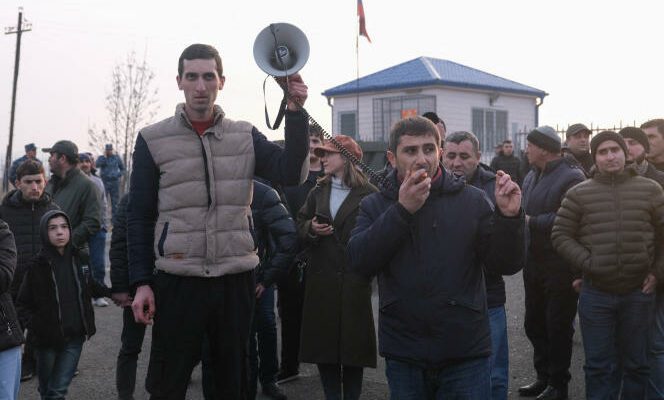Cut off from the rest of the world for more than a month, the inhabitants of Nagorno-Karabakh, the Armenian-majority enclave which declared itself independent from Azerbaijan in September 1991, are trying to survive in the middle of winter in precarious conditions, deprived of food, care, electricity and, for some, separated from their families who remained in Armenia.
Since December 12, 2022, Azerbaijani militants sent by Baku have been preventing traffic on the only road that connects the province to Armenia. They demand access to what they describe as “illegal mining sites” in parts of Nagorno-Karabakh controlled by Armenians. Emboldened by its military success in the 2020 Fall War, Azerbaijan intends to exercise control over the entire region, including Nagorno-Karabakh, and does not envision any special status for the province.
Along the Lachin corridor, the blockade is not total and some vehicles of the International Committee of the Red Cross manage to circulate, transporting medicines and patients. Goods are sometimes transported by the Russian peacekeeping forces. But the supply remains insufficient, which has forced the authorities of the separatist province to set up a system of ration tickets, to restrict cash withdrawals and refueling.
“The situation is getting worse. There is a lack of food products, fruits, vegetables. There is no more diesel so no more agricultural work. On December 13, the gas was cut, then put back on, but it could be again. We also have power cuts.explains Grant Safarian, head of agriculture for the province, during a videoconference organized, Thursday, January 12, from Stepanakert, the capital of the enclave, where the authorities are blocked, just like the population.
Present at the meeting, Ruben Vardanian, the Yerevan-born former Russian investment banker who currently heads the Nagorno-Karabakh government, believes that an airlift, “like the one created to counter the blockade of West Berlin” by the Soviets between 1948 and 1949, should be put in place with the help of the international community.
After a first war, during the collapse of the USSR, for the control of Nagorno-Karabakh, Azerbaijan and Armenia clashed again in the fall of 2020. A conflict which ended in the defeat of Yerevan, forced to return territories to Baku, in particular part of the separatist province. Since then, and despite the ceasefire agreement signed under the aegis of Russia, the embers of the conflict have never really died out. In September 2022, fighting on the border between the two countries left 286 dead.
You have 48.32% of this article left to read. The following is for subscribers only.
